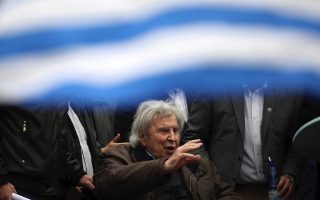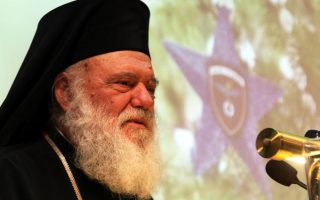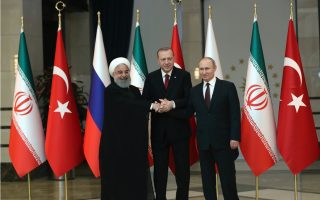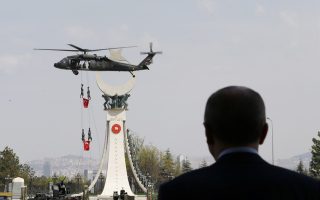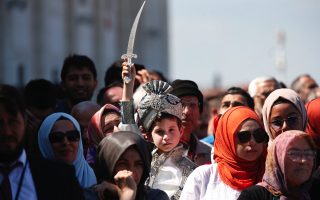Albanian nationalism a bulwark against Erdogan’s Balkan ambitions
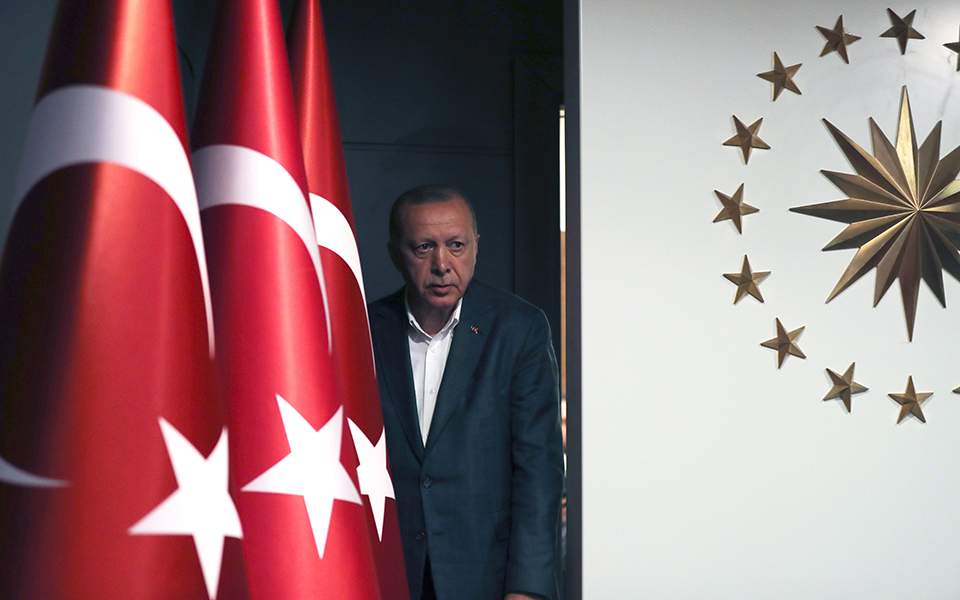
Turkish President Recep Tayyip Erdogan has opened several military fronts in the Middle East and, at the same time, is blurting threats here and there about the Aegean Sea and the Eastern Mediterranean. This does not mean that the Balkans have dropped from his radar.
Erdogan’s plan is to root out any affiliates of exiled cleric Fethullah Gulen in the region, mainly found in private schools and other institutions linked to the movement. Until recently, he would pressure governments into shutting down the schools and surrendering the alleged “terrorists.” Just last month, six Turkish nationals were abducted by agents of Ankara’s intelligence service operating in Kosovo. Meanwhile, Erdogan has launched a propaganda campaign designed to intimidate ordinary Albanians alleging that Gulenists are ostensibly orchestrating a series of coups.
The Turkish president’s efforts to manipulate ethnic Albanian populations in the Balkans via their religious radicalization, however, appear to have gone too far in the eyes of these populations. For he has struck a sensitive chord, which is nationalism. Their national poet, Pashko Vasa, who wrote that “The Albanian’s faith is Albanianism [to be Albanian],” captures a fact that also acts as a barrier against the attempted neo-Ottoman infiltration. Albanians may welcome Turkish investments or money for the construction of mosques, but very few people want to live under a democracy along the lines of the one Erdogan has established at home. The overwhelming majority have their eye fixed on the West where they see a future for themselves and, most importantly, their children. Above all, they feel that Islam, particularly radical Islam, undermines their national identity. After all, they know from their school history books that their ancestors fought to liberate themselves from Ottoman rule and to emancipate themselves as a nation.
A few months ago authorities inaugurated a hydropower plant near the city of Shkodra whose construction was financed by Turkey. Locals destroyed a Turkish flag that was etched onto the facade in an overnight raid. “It was a provocation. We fought the Ottomans who had enslaved us for centuries. We can’t wake up in the morning to that flag,” a local told a Tirana TV channel.
Erdogan may see himself as the leader of Muslims living in the Balkan peninsula, but when he recently visited the Former Yugoslav Republic of Macedonia (FYROM), the leader of the largest ethnic Albanian political party, Ali Ahmeti, refused to escort him on a tour of ethnic Albanian villages and forbade his ministers from joining him.
